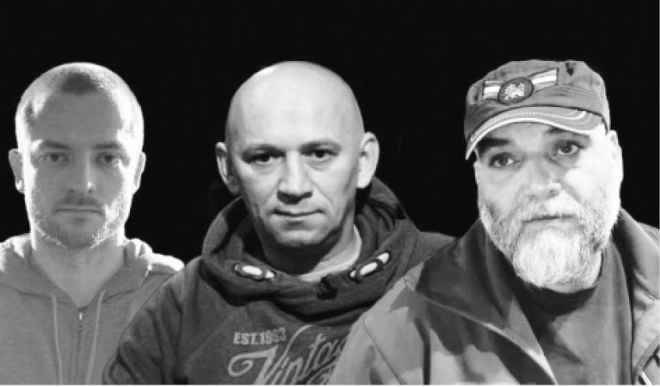Russia shocked by mysterious murder of 3 journalists in CAR
The three men had been on assignment, investigating reports of Russian mercenaries fighting in Central African Republic, (CAR) when their vehicle came under attack and they were shot dead. News of the ambush has led to tributes to the trio, but many questions remain about the circumstances behind their deaths. Renowned war correspondent Orkhan Dzhemal, […]


The three men had been on assignment, investigating reports of Russian mercenaries fighting in Central African Republic, (CAR) when their vehicle came under attack and they were shot dead.
News of the ambush has led to tributes to the trio, but many questions remain about the circumstances behind their deaths.
Renowned war correspondent Orkhan Dzhemal, documentary filmmaker Alexander Rastorguyev, and cameraman Kirill Radchenko were attacked at 19:00 on Monday as they travelled from the CAR capital Bangui to the town of Sibut, some 180km (112 miles) north, local officials say.
They had been travelling at night despite warnings that it was not safe.
Their mission was to look into reports that fighters from a Russian private military company (PMC), the Wagner Group, were operating there.
Wagner PMC has hit the headlines before for its activities in Syria. More recent reports have emerged that the group may have also deployed to CAR.
Russian officials and the Kremlin deny any ties with the fighters. However, Russia did send 180 trainers to Bangui in February, after receiving UN approval to train and arm the CAR military.
Dzhemal, Rastorguyev and Radchenko had been sent to CAR by the Investigation Control Center (ICC), an investigative journalism project sponsored by exiled former tycoon Mikhail Khodorkovsky. All three were employed on a freelance basis.
According to the ICC, the journalists had already visited the Berengo military base outside the capital where the CAR military is being trained by Russian instructors.
Their next destination was the central town of Bambari, where they had arranged a meeting with a UN worker, the ICC says. Russia said this year it was interested in developing CAR’s natural resources.
The three were ambushed by men, all wearing turbans and speaking Arabic, according to Marcelin Yoyo from the Sibut local administration.
A government spokesman said that nine men in headscarves had stopped the journalists at a roadblock. They had then been shot and one had died on the spot while the others died later of their wounds.
Their driver somehow managed to escape and raise the alarm.
Three journalists
· Kirill Radchenko, 33, was a promising cameraman who had worked in Chechnya and more recently in Syria with the Anna news agency
· Alexander Rastorguyev, 47, was well known for his work documenting the conflict in eastern Ukraine and particularly for his internet documentaries on Russia’s opposition protests in 2011-2012
· Orkhan Dzhemal, 51, had covered conflicts in Libya, Syria, eastern Ukraine and South Ossetia, working for Novaya Gazeta, Izvestia, Kommersant and TV channel Dozhd. Known as a fearless and calm war correspondent, colleagues remember him filing a report from a cemetery during the height of a battle in Ukraine
Neither the reason for the attack nor the identity of the killers is clear. Robbery could have been a motive, according to Interfax news agency. Colleagues of the three say expensive camera kit and more than $8,000 (£6,100; €6,850) in cash disappeared from the scene.
Russian state-owned news agency Tass speculated that the Seleka, a local mainly Muslim armed group, might have been involved. CAR has been unstable since the Seleka overthrew the then president in 2013 and a band of largely Christian militias rose up against the rebels.
The killing of journalists in the CAR is rare, but not unknown. French photojournalist Camille Lepage died when she was caught up in fighting in 2014. (BBC)
